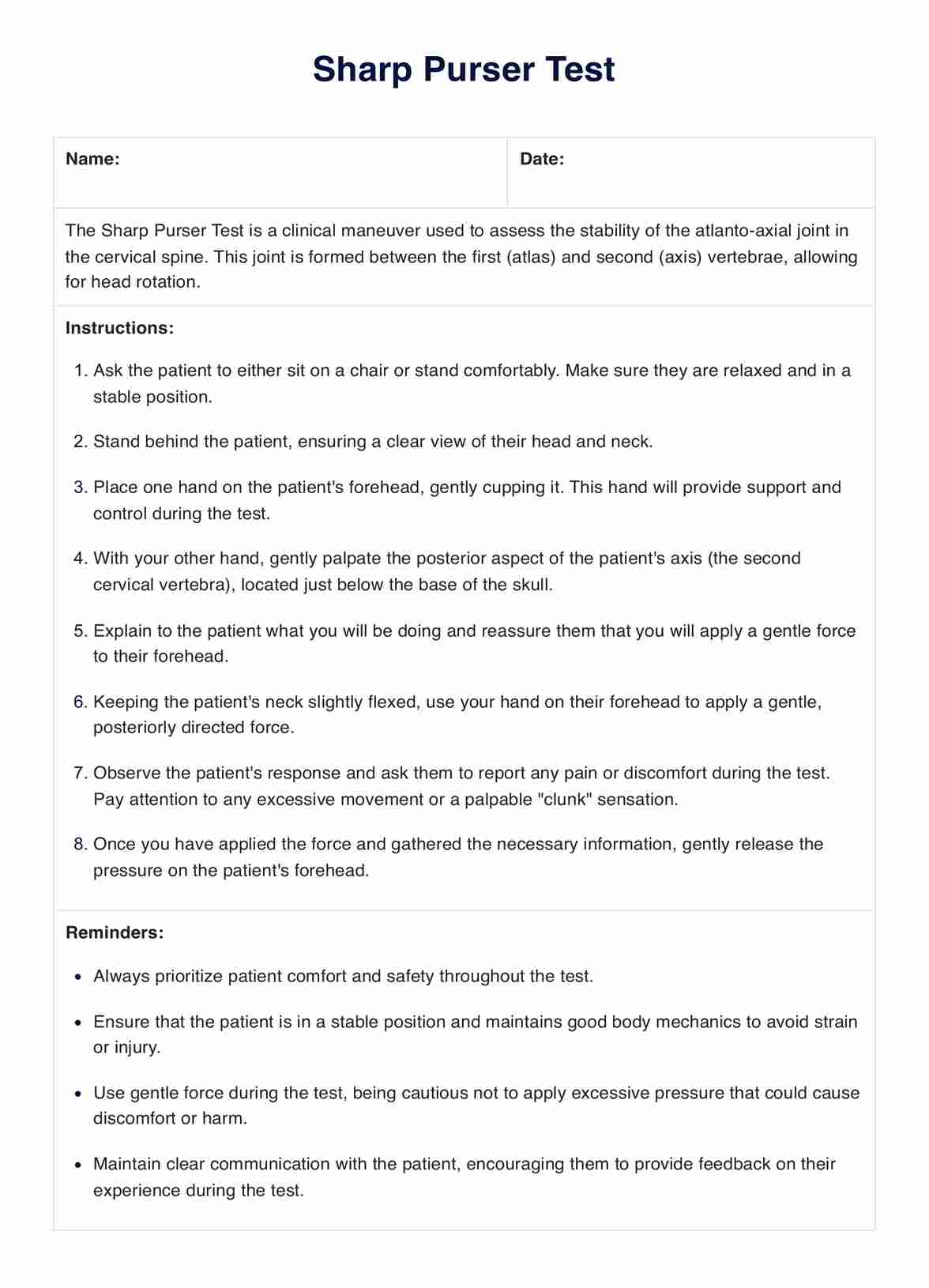The Sharp Purser Test evaluates the range of motion and strength of the neck. It is designed to assess muscular imbalance, pain, stiffness, and other symptoms causing a patient’s discomfort.

Sharp Purser Test
Get access to a free Sharp Purser Test template and example. Learn how to perform this test to evaluate your patient's atlanto-axial joint.
Sharp Purser Test Template
Commonly asked questions
The Sharp Purser Test can be used by any healthcare provider treating patients with neck pain or other symptoms related to the upper spine. It is recommended for physical therapists, osteopaths, chiropractors, and primary care physicians.
The Sharp Purser Test is used to measure and document a patient’s condition. This can help healthcare providers better understand what might be causing their discomfort and tailor treatments for their needs. It also provides helpful insights into the range of motion, strength, and postural alignment of the neck, which can aid in diagnosing the cause of the issue.
EHR and practice management software
Get started for free
*No credit card required
Free
$0/usd
Unlimited clients
Telehealth
1GB of storage
Client portal text
Automated billing and online payments











